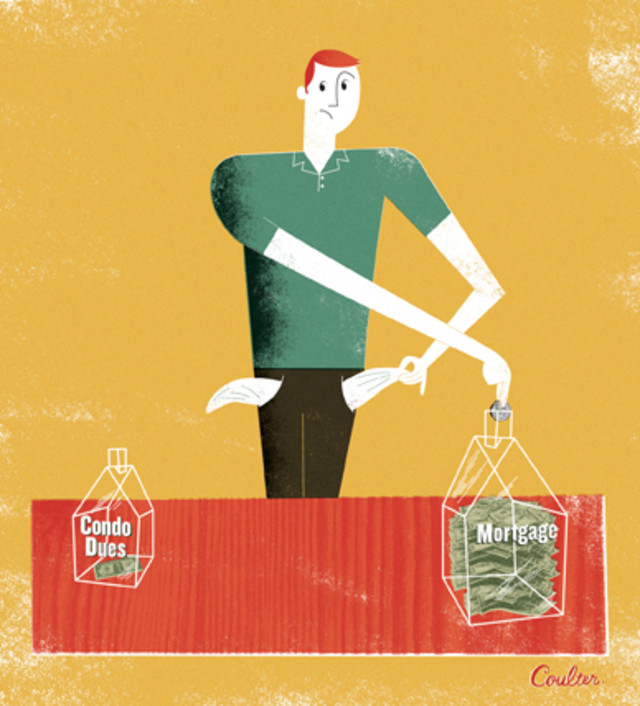Dues and Don’ts

Image: John Coulter
YOU GET A LOT of paperwork when you buy a condo. There’s the resale certificate, the bylaws, and the rules and regulations, and, unless you’re into legalese, it’s the kind of reading material that can cure insomnia. But there is one document that can keep you up nights if you bother to read it. Dig deep enough into what’s called the declaration of condominium and you’ll find that your condo association has the authority to foreclose on your unit if you simply fall behind on your monthly homeowner dues. “People always assume that the only person that can foreclose is the bank,” says Valerie Farris Oman, an associate attorney at the Condominium Law Group. “And that’s simply not true.”
Farris Oman says the firm, which represents condo boards in delinquent-payment cases, has watched its caseload triple in the last three years. And just as with bank-initiated actions, the economy is driving the increase. In some cases, owners have lost a job and can’t pay the monthly dues as they struggle to cover the mortgage. In others, underwater owners are walking away, forcing associations to raise dues to unaffordable levels for those who remain.
“The question, though, is, ‘Would they foreclose on you?’ ” asks Rory O’Sullivan, an attorney at the Northwest Justice Project. A number of factors can inform a condo board’s decision to give an owner the boot—including whether it can foreclose without filing a lawsuit first, and whether or not the owner is underwater—so O’Sullivan suggests reading your declaration of condominium closely.
People always assume the only person who can foreclose on a condo is the bank.
That said, Farris Oman is quick to point out that an association has much more to gain by working with a delinquent owner to establish a payment plan, because in most cases the association can recover at least some of the money it’s owed. Earlier this winter she helped broker a deal in which an owner who was more than $2,000 behind agreed to begin paying her condo dues as long as the association would waive late fees for three months. “In general, my loose recommendation to boards is, if there’s a payment plan that allows the owner to get caught up in, say, 12 months, take it,” she says.
That may not be an option for all down-and-out owners. For them, Erin Rearden, a mortgage counselor at Solid Ground, has one piece of—strangely counterintuitive—advice: “It seems like mortgage companies have more payment plans that they’re willing to provide,” she says. “So when people say, ‘I have a limited amount of money; do I pay the condo association, or do I pay the mortgage?’ I tell them to pay the condo association.”




